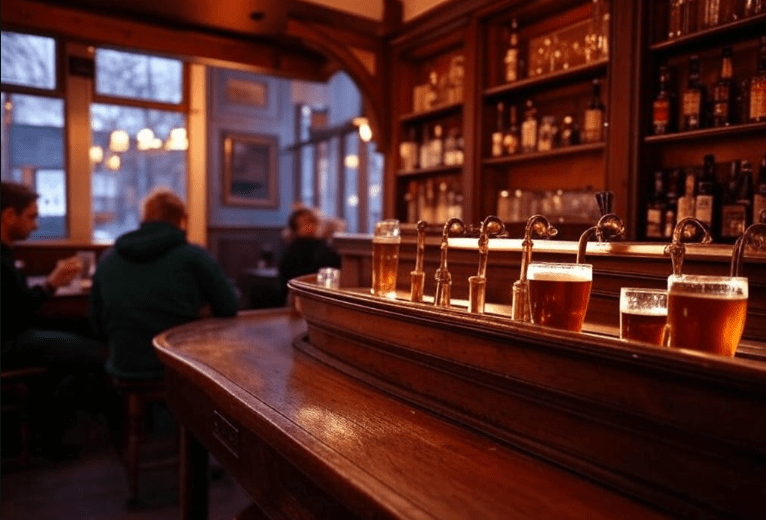Ireland’s long-held image as a nation of heavy drinkers is under fresh scrutiny following a striking new report that shows alcohol consumption in Ireland has dropped by nearly 5% in just one year.
In a study released by the Drinks Industry Group of Ireland (DIGI), findings suggest a substantial cultural shift in drinking habits. Despite a 2.3% rise in the adult population, total alcohol consumption declined by 2.4% to 41.5 million litres, translating to a 4.5% per-capita drop.
“This downward trend raises a big question,” said a DIGI spokesperson. “Why does Ireland still have the second-highest excise tax on alcohol in Europe?”
The report, compiled by economist Anthony Foley, reveals that alcohol consumption in Ireland has been steadily falling for over two decades. Back in the late 1990s, the average adult drank significantly more. Today, the annual figure stands at 9.49 litres of pure alcohol per person—more than a third lower than historical highs.
Irish consumers are not only drinking less—they’re also drinking differently. According to the report:
- Beer remains the nation’s favourite, accounting for 43.3% of alcohol sales.
- Wine has more than doubled its market share since 2000, now making up 28.2%.
- Spirits sit at 22.3%, while cider has declined to 6.1%.
This evolving pattern aligns with wider data from both the OECD and Ireland’s Health Research Board, which show that Irish drinking habits now resemble the European average.
Indeed, countries such as France, Spain, and Austria currently outpace Ireland in per-capita alcohol consumption.
Donall O’Keeffe, DIGI Secretary and CEO of the Licensed Vintners Association, says these latest figures challenge outdated stereotypes.
“Irish people are drinking more moderately. This is part of a trend that’s been going on since the early 2000s,” he said.
He also noted the rising popularity of non-alcoholic alternatives, a sign of changing social behaviours. O’Keeffe believes the time is right to reassess Ireland’s tax policy on alcohol.
DIGI is now pushing for a 10% reduction in excise duty in the next national budget. Such a move, they argue, would ease pressure on struggling pubs—especially in rural areas—facing mounting operational costs.
For those interested in the evolving pub culture and standout drinking spots, check out our curated list of the top 20 best pubs in London—a great snapshot of tradition meeting modern drinking trends.
Despite the encouraging statistics, alcohol still poses a substantial public health threat. The World Health Organisation (WHO) estimates alcohol is linked to 3 million deaths worldwide each year—nearly one-third of those in Europe alone.
So while the steady fall in alcohol consumption in Ireland is a positive development, health advocates warn that vigilance remains essential.
This latest report, backed by data from the Central Statistics Office and Revenue Commissioners, suggests that Ireland may be moving toward a more balanced relationship with alcohol.
Whether the government will respond by easing excise duties remains to be seen. But one thing is clear: alcohol consumption in Ireland is no longer what it used to be.






